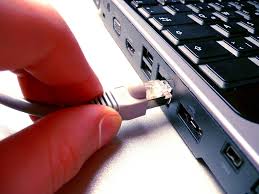
We’ve talked before about the trend of “unplugging.” In our digitally saturated culture, it’s not uncommon to hear about individuals trying to escape the endless beeps and buzzes of phones and computers in order to reconnect with the “real world.” You might have felt the need to unplug yourself.
But I believe that unplugging is largely unnecessary. Why? Well, it’s not tech that’s keeping us from connection. The problem is bigger than that.
What we’re afraid of
In these past few years, we’ve seen new tech-driven disorders arise, such as nomophobia, the anxiety of being without a phone. Tech is influencing the way we function in our daily lives (heard of the Google Effect?). Take a moment and think back to last summer’s movies. In 2013, there was an astonishing number of post-apocalyptic and/or robot-themed films released, each exploring possible directions our tech-driven lifestyles could take us. Such films are not the cause of fear, but merely speak to what we’re dwelling on as a society. We worry that we are losing touch with one another, and that the future generations will be even further removed for the real world.
The real culprit
It’s not tech. It’s the American lifestyle. A 2011 study found that only 57% of Americans use up their vacation days, placing us as the fifth most workaholic country. And it shows - according to a study by the World Health Organization, nearly a third of Americans will suffer from an anxiety problem in their lifetimes (making us the most anxious country in the world), and an American Heart Association Study found that 100 million Americans suffer from high blood pressure. We tend to work and keep working. We sit at our desks and believe that the more hours we put in, the better employees we are. But it’s simply not true.
We fear technology because we associate it with a lifestyle that’s out of balance. When you are behind a computer for most of the day and then respond to the endless emails after dinner, no one’s going to be very happy. Our lives are busy. Technology is the tool we use to stay busy, but it’s not the source of busyness.
Finding connection in a digital society
I recently read an article by Paul Miller, a writer for The Verge. In an attempt to really “unplug,” he left the internet for a year. Although the endeavor started out great, the benefits began to fade. “I would stay at home for days at a time,” he writes, “My phone would die, and nobody could get ahold of me […] On the internet it was easy to assure people that I was alive and sane, easy to collaborate with my coworkers, easy to be a relevant part of society.”
We are a digital society, and the internet is here to stay. But digital doesn’t mean impersonal. Take Popcorn Messaging, for example. The app offers private chatting with strangers within one mile of your location. Users can make friends in the digital space whom they can then meet for coffee a few minutes later. Dating sites are also catching onto the trend. HowAboutWe allows singles to suggest what they want to do for a date (Museum wandering? Hiking? Drinks?) and then wait to see who responds. It’s dating with a focus on real-world activity, emphasized by their tagline: “Get together. Be together.” We see extended family members staying in touch over social media. And who hasn’t attended a Facebook event? Even the most outdoorsy types can find community online (or check out Yonder, an app for outdoor explorers). Turning off the beeps every now and then is healthy, but remember that we use technology to stay connected to one another.
The drive behind the unplugging trend breaks down to an unhealthy mentality toward work. Employers can help their employees avoid this by first encouraging a separation between work and home life. Checking midnight emails and bringing work home might be great in the short-term, but it’s not sustainable and tends to eventually result in lower overall productivity. Next, combat feelings of disconnection by fostering strong workplace friendships. And yes, there’s even tech to help with this. Check out CoffeeWho, an app designed to get employees talking through one-on-one meetings. But app or otherwise, help your employees get to know one another. It’s the difference between high turn-over rates and high retention.
On a personal level, remember that the internet is merely a tool. You can use it to connect, or you can use it to procrastinate, just like most other things in life. Modern society operates in tandem with technology. It’s all about finding your balance.




